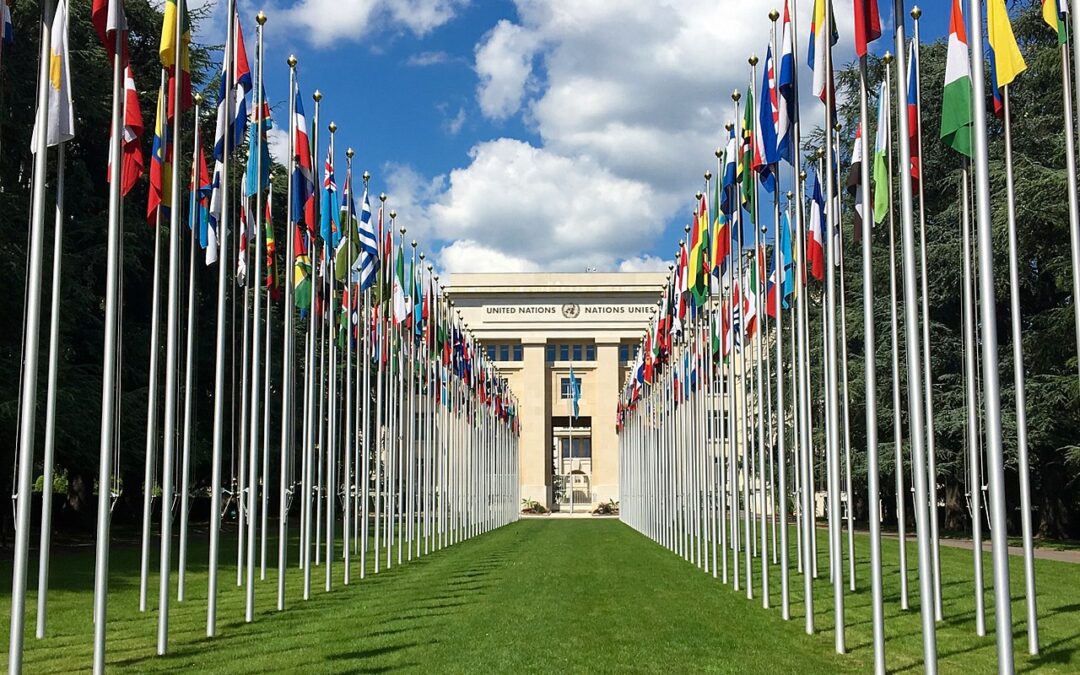
Oct 13, 2020 | Advocacy, News, Non-legal submissions
On 12 October 2020, the ICJ made a submission to the Human Rights Council’s Working Group on the Universal Periodic Review in advance of the Human Rights Council’s review of Singapore in May 2021.
In its submission, the ICJ expressed concern about the following issues:
(i) Freedom of expression online;
(ii) The death penalty;
(iii) Corporal punishment; and
(iv) International human rights instruments.
The ICJ further called upon the Human Rights Council and the Working Group on the Universal Periodic Review to recommend that Singapore ensure, in law and in practice, the right to freedom of expression online, the right to life and the absolute prohibition against cruel, inhuman or degrading treatment or punishment; and become a party to core international human rights instruments, including the International Covenant on Economic, Social and Cultural Rights, the International Covenant on Civil and Political Rights, the Convention Against Torture and Other Cruel, Inhuman or Degrading Treatment or Punishment, the International Convention on the Protection of the Rights of All Migrant Workers and Members of Their Families and the International Convention for the Protection of All Persons from Enforced Disappearance, as well as the existing Optional Protocols to some of these treaties.
The submission is available in PDF here.
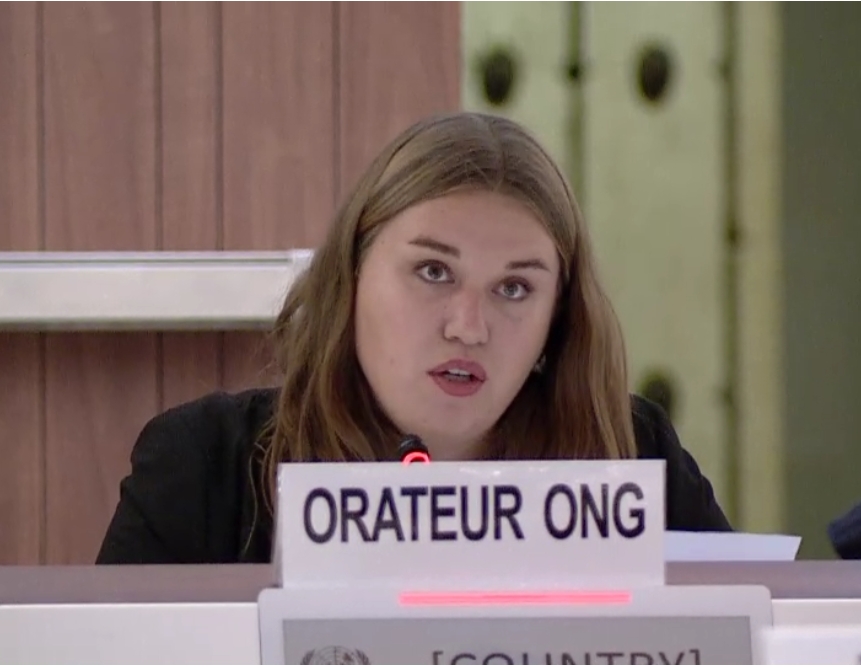
Oct 5, 2020 | Advocacy, Non-legal submissions
The ICJ today highlighted the need for accountability for crimes under international law in Libya, and concerns for the independence of lawyers in Ukraine, at the UN Human Rights Council in Geneva.
The oral statement, delivered in the general debate on technical cooperation and capacity building, read as follows:
“Madame President,
The International Commission of Jurists (ICJ) welcomes the oral updates on Ukraine and Libya.
Technical assistance and capacity building objectives in Libya can only be achieved if the protection of human rights, entrenchment of the rule of law and pursuit of accountability are prioritized.
States should support the Fact-Finding Mission by extending its reporting mandate, increasing contributions to the UN budget necessary to establish the Mission’s secretariat, and fully cooperating with it.
States should also support the Berlin Process working groups, ensuring that the political and accountability pillars work in unison and making meaningful commitments to implement their recommendations.
Across all of Ukraine, lawyers continue to be associated with their clients and may face consequences for representing them by private individuals and also through abuse of legal proceedings. High-profile cases bear risks for independent lawyers who choose to diligently represent their clients.
The decline in security of lawyers in and outside of courts, and the problem of threats, harassment, and attacks against lawyers, should be addressed as a matter of priority, including through technical cooperation. Measures should be taken to build the capacity of law enforcement agencies and court security personnel to ensure that lawyers and others involved in court proceedings can work in an atmosphere free from intimidation, harassment, and improper interference.
Thank you.”
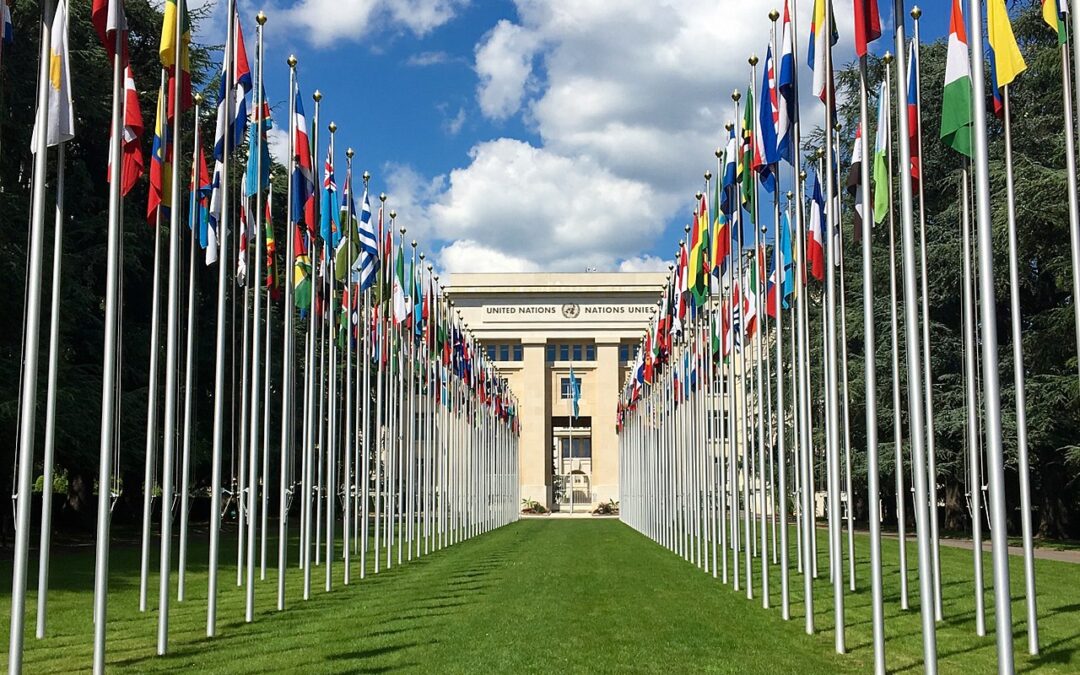
Oct 5, 2020 | Advocacy, Non-legal submissions
The ICJ today joined other NGOs in expressing concern that the Human Rights Council is poised to fail to adequately respond to the human rights crisis in the Philippines, and urging stronger action.
The statement, which was delivered by the World Organization against Torture (OMCT) on behalf of the group of NGOs in a general debate on item 10, read as follows:
“On behalf of 15 organisations, including colleagues in the Philippines, we are deeply disappointed that the draft Item 10 resolution on the Philippines fails to reflect the gravity of the situation, including as documented in the OHCHR report.
Colleagues from the Philippines have tirelessly advocated for an international investigation, at great personal risk. The thousands of victims of killings and other violations and their families continue to be deprived of justice.
This is a collective failure by the States at this Council. We are shocked by the lack of support for a more robust response.
We acknowledge the rationale presented for constructive engagement with the Government of the Philippines. However, an approach based purely on technical cooperation and capacity-building has no realistic prospect of meaningful impact with a government that denies the true scale and severity of the human rights violations, has publicly endorsed the policy of killings, avoids independent investigations, and continues to crack down on civil society.
Despite the shortcomings of the resolution, it at least keeps the situation on the agenda for the next two years and allows for robust reporting by the OHCHR on the situation – including the implementation, or lack thereof, of OHCHR report recommendations. The Council must follow developments closely and be ready to launch an independent investigation if the killings and the crackdown on civil society do not immediately end and prosecution of perpetrators is not pursued.
I thank you.”
- Alyansa Tigil Mina (ATM)
- Amnesty International
- Asian Forum for Human Rights and Development (FORUM-ASIA)
- CIVICUS
- Ecumenical Voice for Human Rights and Peace in the Philippines (EcuVoice)
- Franciscans International
- Harm Reduction International
- Human Rights Watch
- iDefend
- International Commission of Jurists (ICJ)
- International Federation for Human Rights (FIDH)
- International Service for Human Rights (ISHR)
- KARAPATAN
- Philippine Alliance of Human Rights Advocate (PAHRA)
- World Organisation Against Torture (OMCT)
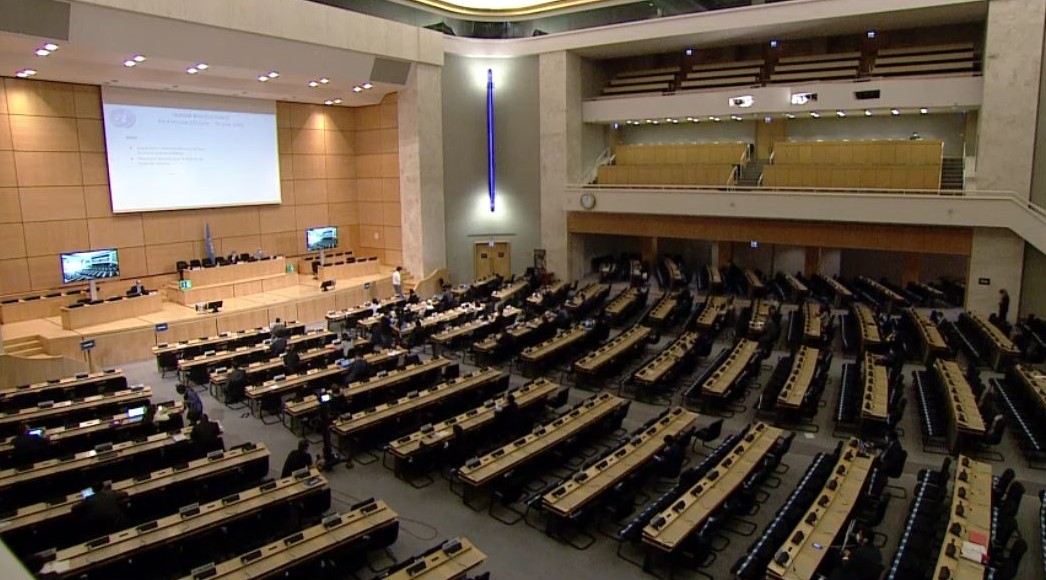
Sep 29, 2020 | Advocacy, Non-legal submissions
At the Human Rights Council, the ICJ and other NGOs highlighted with concern renewed attacks against the Council’s independent experts, aimed at interfering with their independence.
The oral statement was delivered by Amnesty International, in the general debate on human rights bodies, on on behalf of 14 NGOs. It read as follows:
“It is with great concern that we note the renewed attacks against the Special Procedures of this Council, through which certain states seek to interfere with their independence and impose political oversight over individual experts. While we welcome the outcome of the informal discussions, we would like to raise a few issues of concern.
As we noted in our letter to you Madame President, the states signatories of the letters rely on PRST 8/2 of 18 June 2008 on the Terms of office of special procedure mandate-holders, which was originally adopted in the specific context of Council discussions on the extension of the terms of mandate holders, and should not be regarded as a wider framework for assessing the performance of mandate holders. Furthermore, the groups of states appear to have ignored the existing Internal Advisory Procedure, instead proceeding directly to attempts to impose political oversight by this Council.
We also note with great concern that several of the signatory states launched wholly inappropriate attacks of a personal nature against Special Procedure mandate holders in the past.1
The allegations presented against the Special Rapporteur on extrajudicial, summary or arbitrary executions, in particular, seem little more than objecting to her being especially effective and proactive in doing exactly what this Council has tasked her to do, including monitoring and reporting on violations of the right to life and bringing these to the attention of the Council, and promoting respect for the right to life more generally.
We appreciate the efforts by the Coordination Committee to address broader issues related to the working methods of the Special Procedures, and welcome its willingness to work with the Special Rapporteur on the right to privacy on issues related to methodology and programming of the six outstanding country reports.
The independence of the Special Procedures is absolute in nature, and any attempts to erode that status threatens the credibility and integrity of this Council.
Thank you.”
Amnesty International
ARTICLE 19
Asian Forum for Human Rights and Development (FORUM-ASIA)
Center for Reproductive Rights
Child Rights Connect
CIVICUS: World Alliance for Citizen Participation
DefendDefenders (East and Horn of Africa Human Rights Defenders Project)
Geneva for Human Rights
International Commission of Jurists
International Federation for Human Rights (FIDH)
International Movement Against All Forms of Discrimination and Racism (IMADR)
International Service for Human Rights
Privacy International
Women’s International League for Peace and Freedom (WILPF)
1 Amnesty International and ISHR: HRC 37: Item 5: Human rights bodies and mechanisms, 14 March 2018, Index number: IOR 40/8032/2018, https://www.amnesty.org/en/documents/ior40/8032/2018/en/
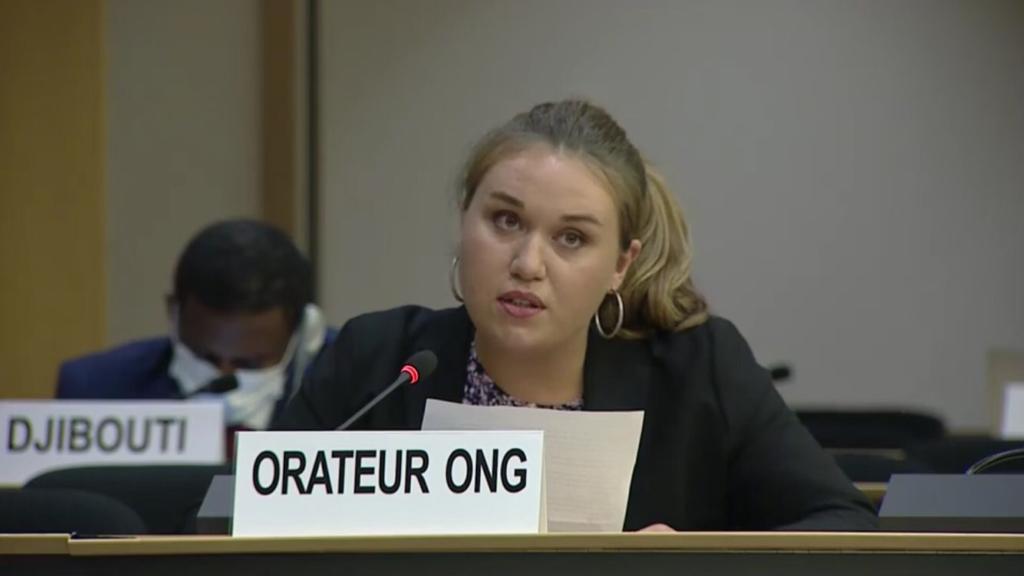
Sep 29, 2020 | Advocacy, Non-legal submissions
At the Human Rights Council, the ICJ today highlighted the problem of abuse of counter-terrorism laws to perpetrate reprisals against those who cooperate with the UN, including particularly by Egypt.
The oral statement was delivered in a general debate on human rights bodies and mechanisms (item 5), and read as follows:
“Madame President,
The International Commission of Jurists (ICJ) welcomes the report of the Secretary General on Cooperation with the United Nations, its representatives and mechanisms in the field of human rights (A/HRC/45/36). The ICJ particularly concurs with its conclusion that reprisals perpetrated through abuse of national security and counter-terrorism laws and measures continue at alarming levels (para 131), and that such abuse also frequently occurs in the context of broader repressive environments for civil society or dissent (para 132).
While the report documents such abuses in a number of countries, the pattern of abuse of such laws by the government of Egypt presented in the report should be of particular concern to this Council (paras 65 to 70, Annex I paras 40 to 51, Annex II paras 44 to 53).[1] Further relevant cases from Egypt continue, including shortly before this session began.
These reprisals resonate with broader patterns of abuse of counter-terrorism and national security laws in Egypt, including for instance targeting lawyers, which are also severely exacerbated by the lack of independence of the judiciary in Egypt, particularly in the special terrorism court circuits.
Madame President, these patterns of abuse only further illustrate and underscore civil society’s concern with the role Egypt seeks for itself on issues of terrorism and human rights at the Council. In that regard, we reiterate our concerns about the pending report of the Advisory Committee, responding to the request it received under the last Egypt-led separate resolution on “the effects of terrorism” (resolution 34/8) to report on “the negative effects of terrorism on the enjoyment of all human rights and fundamental freedoms, with a particular focus on economic, social and cultural rights, including as a result of diverting foreign direct investment, reducing capital inflows, destroying infrastructure, limiting foreign trade, disturbing financial markets, negatively affecting certain economic sectors and impeding economic growth.”
The Human Rights Council should not, Madame President, countenance such attempts to divert and dilute its limited resources and attention away from the most acute issues on this theme from a human rights perspective: preventing and responding to violations in countering terrorism and a human-rights based approach to victims of terrorism.”
[1] Underlying documents in a number of cases mentioned in A/HRC/45/36 reveal further links to abuses of counter-terrorism and national security laws: see e.g. A/HRC/39/31 para 38 and Annex I paras 32-35; A/HRC/27/38, para 24; A/HRC/36/31 para 33 and Annex I, para 34; and A/HRC/39/31 Annex II, paras 17-18, 21.
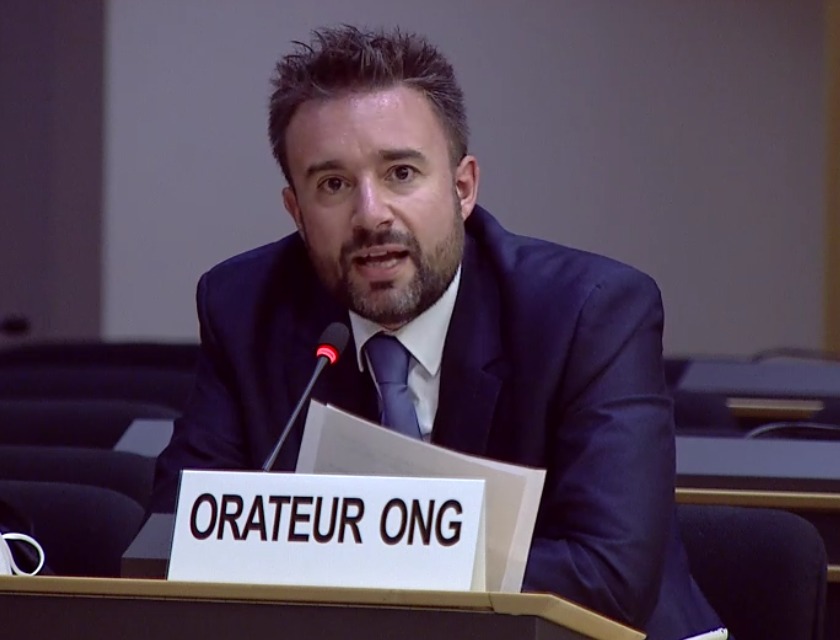
Sep 29, 2020 | Advocacy, Non-legal submissions
The ICJ and IHOP today put the spotlight the lack of independence of the judiciary and the abuse of criminal and anti-terrorism laws in Turkey, speaking at the UN Human Rights Council in Geneva.
The statement, made during the consideration of the Universal Periodic Review (UPR) of Turkey, reads as follows:
The International Commission of Jurists (ICJ) and the Human Rights Joint Platform (IHOP) welcome the acceptance by Turkey of recommendations to ensure the independence of the judiciary (recommendations 45.112, 45.113, 45.114, 45.115, 45.118, 45.120, 45.121, 45.124, 45.125, 45.126, 45.127, 45.128, 45.129, 45.132, 45.133).
The ICJ and IHOP however regret to report that, based on their research and experience, the statements by the Turkish Government that the recommendations on the independence of the judiciary have already been implemented is simply not correct.
On the contrary, during the state of emergency more than 4000 judges and prosecutors were dismissed, more than 2000 judges and prosecutors were detained, through arbitrary processes that did not meet international standards.
The judiciary in Turkey does not enjoy basic guarantees of institutional independence because its Council of Judges and Prosecutors is fully appointed by the Legislative and Executive powers contrary to international standards on judicial independence.
The ICJ and IHOP further regret that Turkey only noted and did not explicitly support the recommendations to reform its penal and counter-terrorism legislation in line with international standards on freedom of expression (recommendations 45.90, 45.91, 45.92, 45.93, 45.94, 45.95, 45.96, 45.97, 45.98, 45.99, 45.100, 45.101, 45.102, 45.103, 45.104, 45.148, 45.158).
The statement by the Government that “legal amendments have already been adopted” and that these laws are in line with international standards is also fundamentally incorrect.
Anti-terrorism laws and other criminal offences continue to be abused to unjustifiably prosecute political opposition members, judges, lawyers, prosecutors and human rights defenders.
To actually implement the recommendations accepted by Turkey, ICJ calls on Turkish authorities to
- radically reform the governance of the judiciary to restore its independence in line with international standards;
- promptly finalize all criminal and administrative cases concerning former judges and prosecutors, respecting international standards of judicial independence;
- truly reform the country’s anti-terrorism law, and
- stop all arbitrary prosecution of human rights defenders, lawyers, judges, prosecutors and academics.
Contact:
Massimo Frigo, ICJ Senior Legal Adviser, e: massimo.frigo(a)icj.org, t: +41797499949










